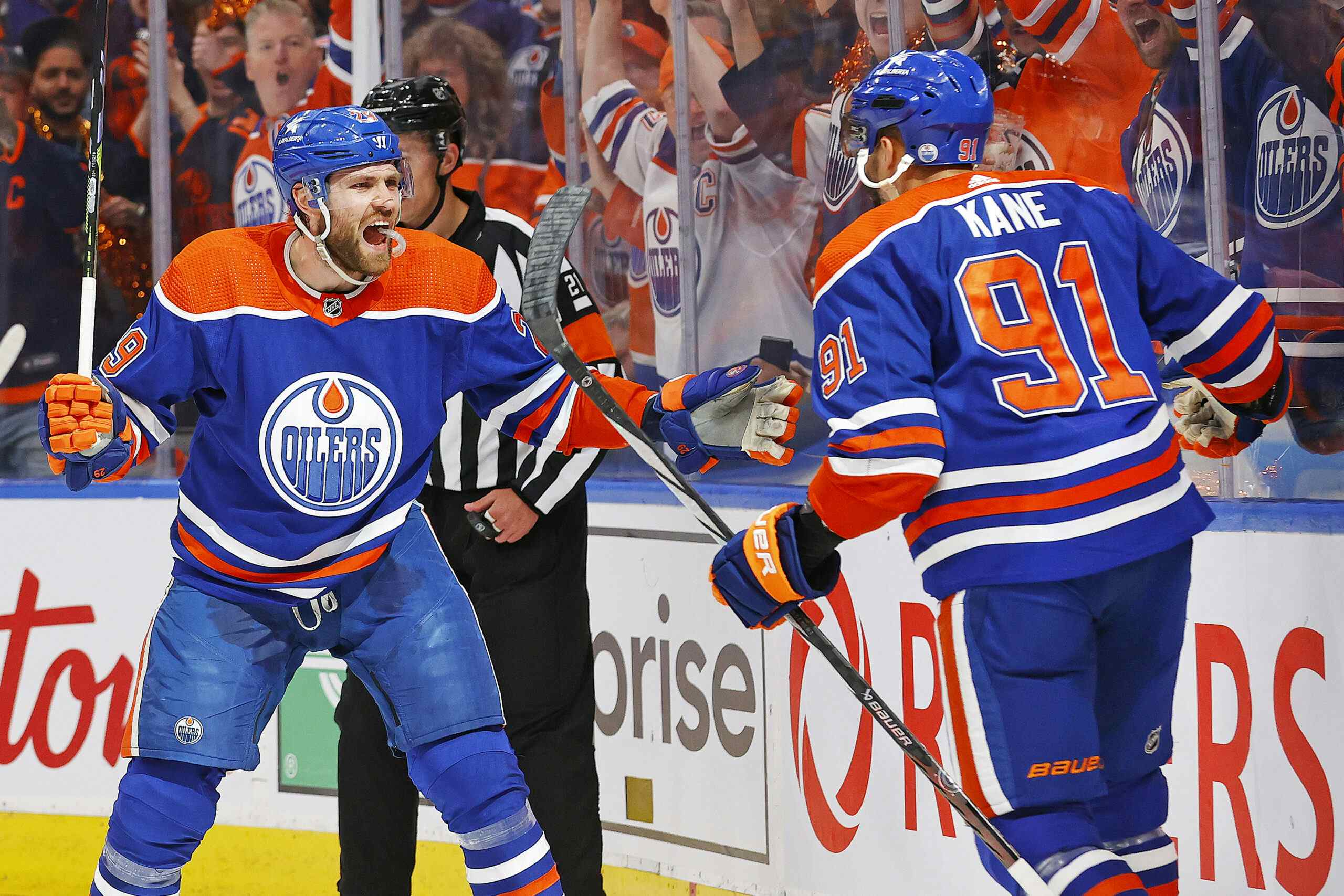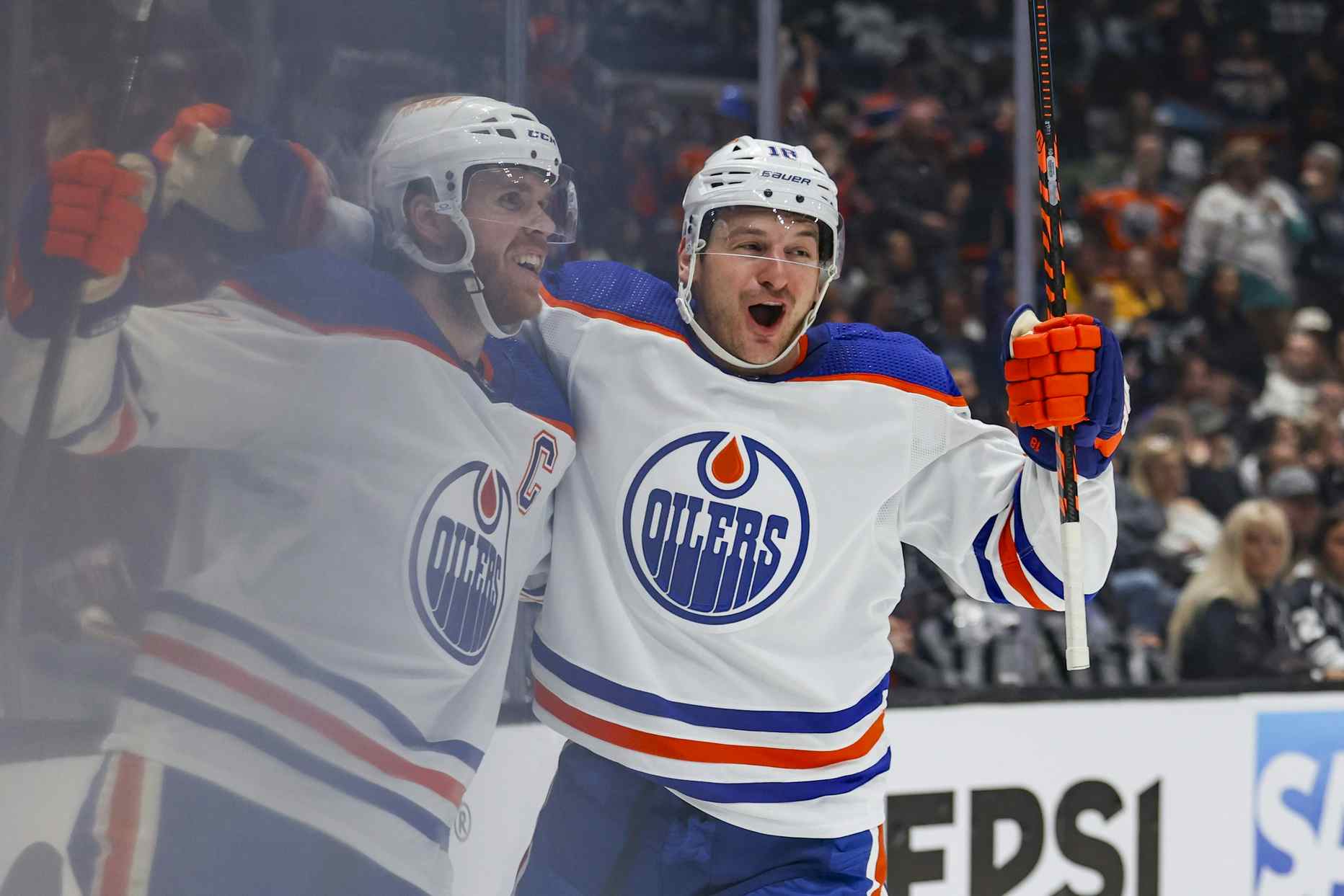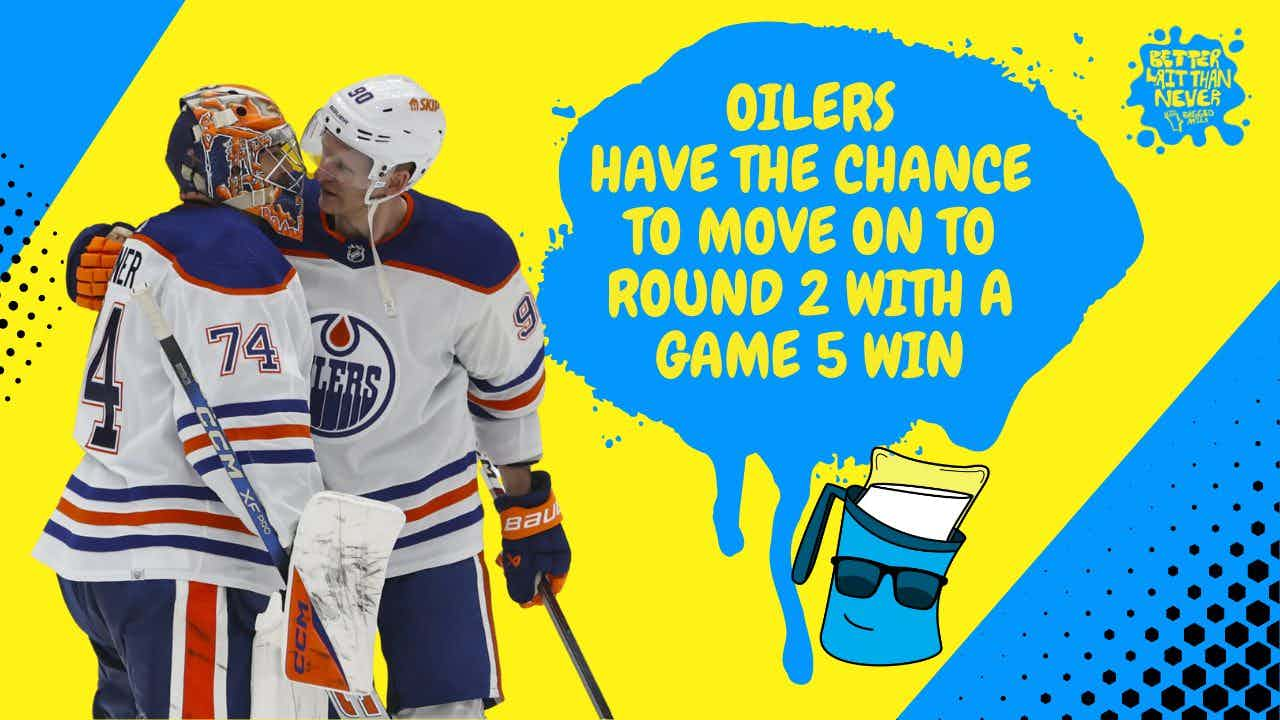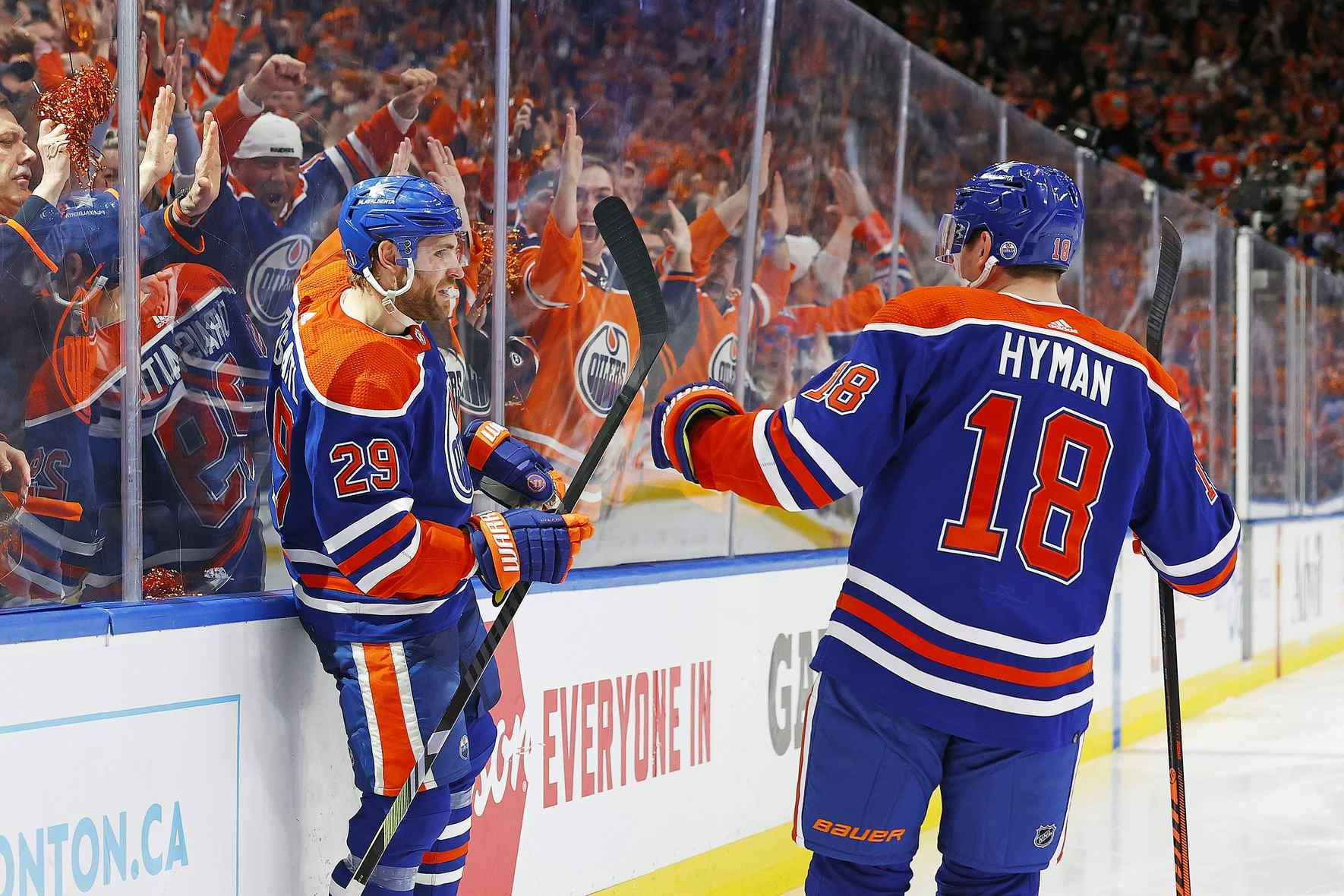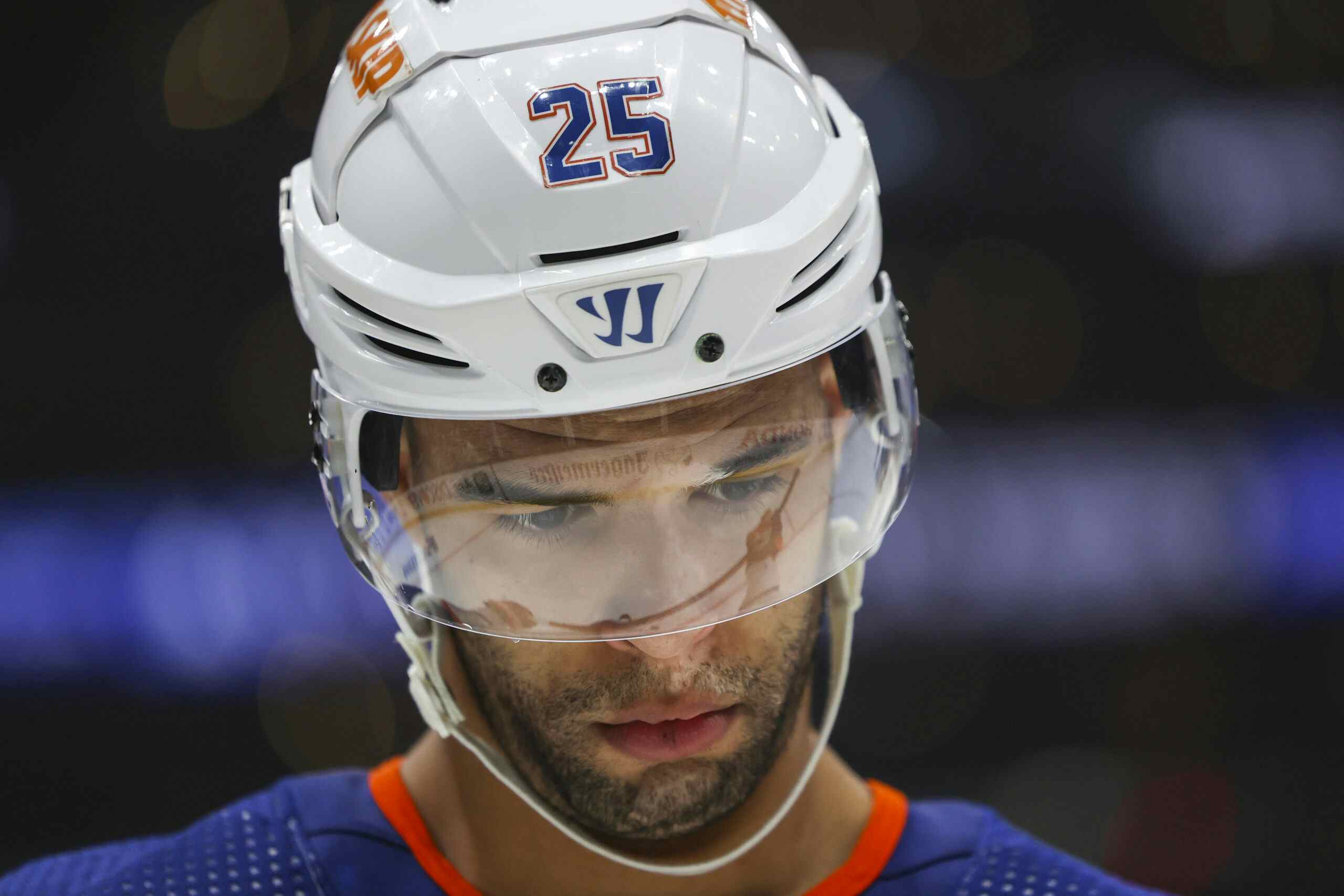Accountability
Accountability is a simple concept. Typically, it involves setting reasonable goals in advance, then going back and reviewing those goals. If goals were not met, responsibility needs to be accepted, an explanation offered, and a plan to rectify the situation implemented.
I wonder if Steve Tambellini is doing those things with Daryl Katz this month.

For much of the rebuild, accountability has been a favoured phrase for the Oilers’ G.M. Part of the reason Pat Quinn was brought in to coach the team was to hold players accountable. Tambellini has repeatedly emphasized the need for internal accountability at all levels of the organization.
We’ve seen the results. The Oilers have conducted a house-cleaning, replacing players, trainers, coaches, and even going so far as to dismiss assistant general manager Kevin Prendergast, a 20-year employee.
In 2009-10, the Oilers fell flat on their face after a summer of reshaping at the hands of Tambellini. Some more housecleaning was done, and the rebuild officially launched.
During that rebuild, it has been difficult to hold the executives running the organization to account, simply because there were no reasonable goals for them to exceed. The team tanked – as evidenced by Tom Renney’s 1920’s-style bench management – in 2010-11. The Oilers’ were the NHL equivalent of “Spring Time for Hitler” where failure was the expected outcome and was in full accordance with the team’s long-term plan.
This year, however, was different. This year, Steve Tambellini set easily identifiable goals for his team. This, for example, from Hockey Night in Canada on December 18:
According to CBC play-by-play man Mark Lee, he had a conversation with Steve Tambellini Friday night. During the broadcast of the Oilers – Sharks Hockey Night in Canada game, Lee told the audience that Tambellini said he "…thinks they’ve got all of the pieces here to make a run at the playoffs."
That can be taken one of two different ways: either Tambellini expected the Oilers to make the playoffs, or just to contend for a playoff spot. By either measure, the Oilers failed badly. Then again, this was a second-hand statement; a public line in the sand directly from Tambellini’s mouth might be more apt.
There’s one of those, too. Less than a month later, Tambellini drew his line in the sand:
“Do I want to be a lottery pick again? No, I’ve said that from the beginning.”
“I’m not going to put a number on it. I want to finish as high as possible. Again, I don’t want a lottery pick.”
“The first month and a half of this season showed our capabilities. It wasn’t an illusion, not to me. If you look at our team when our defence is healthy and our goaltending is the way it was then, that’s the type of hockey I think we can play. It was the skill forwards paying a price to get inside to score, it was the tenacity of, say, an energy forward who refused to give up on a puck or the play of Nikolai Khabibulin, who’s been banged up the last while. I don’t want to use this is a cop-out, but we’ve missed Whitney, Sutton, Barker and Potter for a great time of the season. That’s put pressure on our team. We were much stronger in front of our net when they were all playing. That was an obvious upgrade from last year.”
There it is, twice: I don’t want a lottery pick. That’s a clear goal, a modest and achievable goal, with success or failure easily identifiable. The Oilers finished 29th in the NHL. They failed to meet the goal that Tambellini gave them at mid-season. Tambellini offered reasons for their poor play at the time – Khabibulin being banged up, the absence of some defensemen. Khabibulin returned, and lost the starting role to a much better Devan Dubnyk. Those defensemen returned, and the team continued to lose games.
Steve Tambellini is accountable to his bosses – Kevin Lowe and ultimately Daryl Katz. One imagines he set the same line in the sand privately, given his confidence in the team and the attainable nature of the goal. The goals were not met. In the same interview from January where he set ‘not a lottery pick’ as the goal, he said he hoped to improve the team via trade later in the month. He did not.
Tambellini doesn’t have to explain to us why his goals weren’t met. He doesn’t have to explain to us his role in his hand-picked team failing to meet those goals. He doesn’t have to offer the public an explanation, or outline his concrete plan to correct matters. One hopes that he is forced to do those things in private, and that he is forced to do them before he gets a contract extension.
If he isn’t, it would seem that “accountability” ends exactly one level below the general manager.
Recent articles from Jonathan Willis

